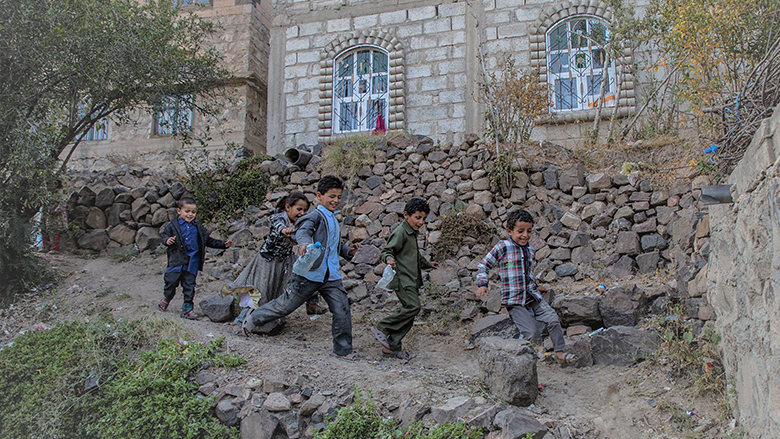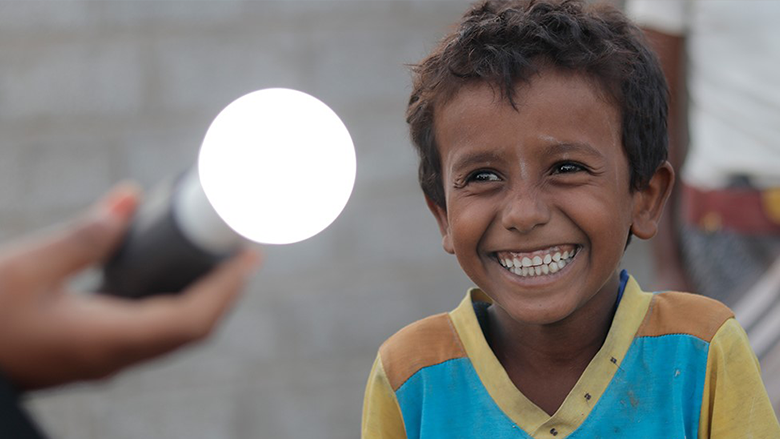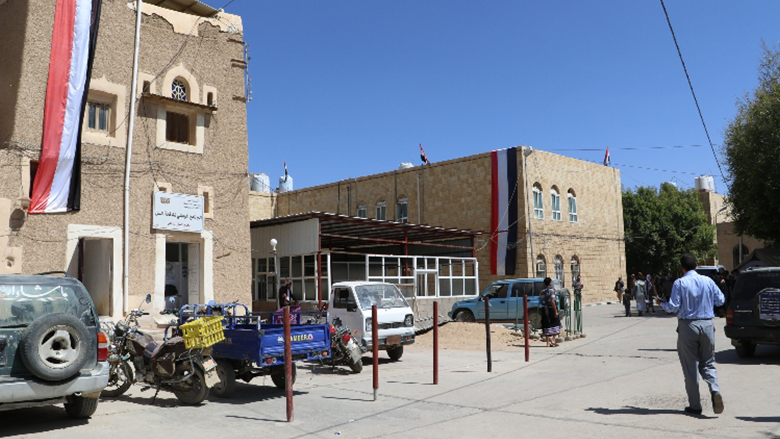“In Sana’a, from morning to night, people worry about the petrol shortage, power outages, and simply getting the basics to live,” explains Faizah Al-Sulimani. Faizah works with the Small and Micro Enterprise Promotion Service, a local organization in Yemen supported by the World Bank. “As Yemenis, we need to find another solution so that we can have a good quality of life.”
Yemen has been embroiled in a protracted conflict that, since 2015, has turned the poorest country in the Middle East and North Africa region into the world’s worst humanitarian crisis. By the end of 2019, its death toll had reached 233,000 people, with half of the deaths caused by a lack of food or access to health care, as well as the lack of basic infrastructure to provide these services.
Out of a total population of about 29 million, about 20 million Yemenis are food insecure and at risk of malnutrition, with two-thirds unable to afford enough food and water. Over 4 million people have fled their homes. Communicable diseases, including diphtheria and dengue fever, have spread throughout the country. And with the onset of COVID-19, Yemen faces yet another challenge.
“While the conflict has increased existing vulnerabilities in Yemen, other crises such as COVID-19 and floods have aggravated the situation,” says Abdulelah Taqi. Taqi is a donor reporting officer with the Social Development Fund (SFD), one of the remaining national institutions, which has been supported by the World Bank since its inception in 1997. “My family members and I lead a village life in our country’s capital city [of Sana’a]. We drive on broken roads, study in totally dark nights, and line up to get water from public distribution tanks.”
After one of the worst cholera outbreaks in modern history, in which millions of people were infected, the health system in Yemen is on the brink of collapse. Yemen’s health facilities are ill equipped to respond to the COVID-19 pandemic. Intermittent blackouts have stymied doctors’ abilities to treat patients. To make this harrowing situation even worse, Yemen is now also facing a locust outbreak, further threatening food security throughout the country.




